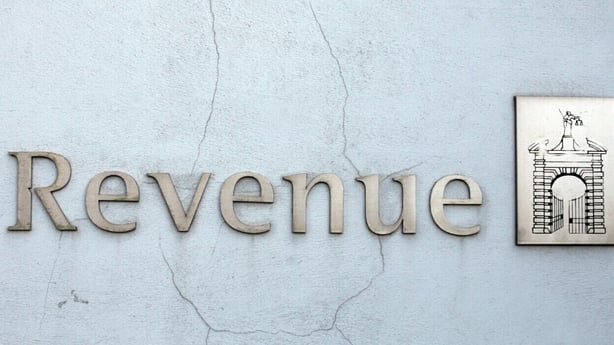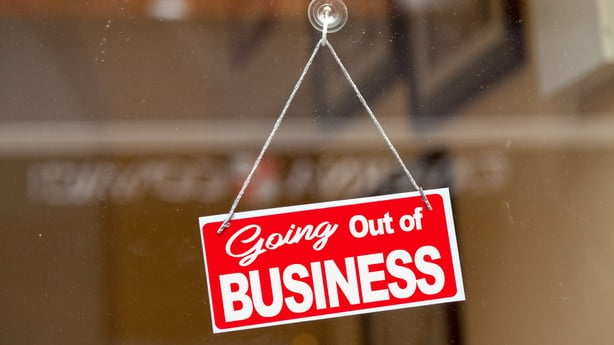Tax warehouse deadline leaves thousands of firms exposed

It seems like a long time ago now.
But the businesses that were facing financial meltdown when the Government announced the first Covid-19 lockdown in early 2020 will never forget it.
All firms, except those carrying out essential work, were forced to close their doors.
Tills fell silent, cash stopped flowing, bills went unpaid, staff were laid off, nights became sleepless.
The Government moved quickly to introduce measures that might ease the burden.
There were Pandemic Unemployment Payments for workers laid off, wage subsidies for businesses that could keep staff on the books and on May 2nd 2020, a tax debt warehousing scheme.
The idea was that those organisations that had tax bills owing at that time, or over the months ahead, could park those debts to relieve at least some of the financial burden they faced.
And they desperately grasped the opportunity with both hands, shutting away VAT, taxes they owed under the PAYE scheme and wage subsidy overpayments that were due to Revenue.

At its peak €3.2 billion in debt was placed in the notional “warehouse”, buying 250,000 businesses time and space until the pandemic restrictions eased.
Eventually they did – though for some they lasted longer than others, coming and going amid the virus waves.
The warehouse stopped taking debt from most businesses at the end of December 2021, although some were still allowed to use it until April 2022, as restrictions on them remained in place.
Over the following year, the debt lay dormant, attracting a 0% interest rate.
After that, the interest rate became 3%, in an effort to nudge firms towards paying it back.
However, in February of this year, the Government decided to reduce that rate retrospectively back down to 0% again, because of the cost-of-living pressures organisations were facing.
However, now Revenue has called time on the scheme.
By May 1st, those with tax debt still on ice must have done one of two things – either paid what they owe in full, or agreed a payment arrangement with Revenue over a set period of time.
If they haven’t done either of these things by Wednesday, their debt will be removed from the protection of the warehouse.
It will become payable immediately, may be subject to debt enforcement action and subject to interest charges of 8% or 10%.
The amounts of money left in the warehouse and the numbers of firms concerned are not insubstantial.
Around €1.6bn remains to be paid by around 53,000 firms.
Around 26,000 owe less than €500, which in the main shouldn’t be a huge problem to clear.
But 22,000 businesses owe between €500 and €50,000 while 4,800 (9%) owe more than €50,000.

And these businesses collectively owe €1.4bn of the outstanding €1.6bn.
A big problem for a small few.
Revenue says engagement has picked up in recent weeks and its extended contact hours to cope with demand.
“Applications for Phased Payment Arrangements are being submitted on a constant basis and customers are also engaging with us via phone and MyEnquiries,” said Revenue’s Collector General, Joe Howley.
“As a result of this increased level of engagement, over 6,500 payment arrangements for warehoused debt have now been set up on our system, an increase of over 3,700 in the period since 31 March.”
He added that the level of warehoused debt not yet subject to an active payment plan is now below €1 billion and this balance will continue to reduce as we approach 1 May.
“We are actively progressing a further 1,300 Phased Payment Arrangement applications at present and we are aware that many customers have financially planned to pay their warehoused debt in full on or close to 1 May, in order to fully maximise the benefit of the 0% interest rate,” Mr Howley said.
“It is important to stress that there is no expectation on businesses to pay their warehoused debt in full by 1 May. However, in order to retain the benefit of the 0% interest rate applicable to warehoused debt, businesses must engage with us in a meaningful way by this key date. Those businesses that submit an application for a Phased Payment Arrangement through ROS by 1 May will be considered to have met this requirement.”

“The crucial message, therefore, for any business that has not yet engaged with us in respect of their warehoused debt, is to act now and engage with us immediately to formulate a payment plan” Mr Howley added.
There is no doubt that the warehousing scheme, coupled with the other measures that were introduced during the pandemic, kept many businesses that were extremely vulnerable alive.
But experts say that very many of those firms that still have tax debt warehoused were not viable when they first availed of it and are still not today.
Add to that the fact that many organisations are really struggling with the general cost of doing business at the moment and the situation for hundreds, possibly thousands of firms begins to look pretty grave.
As a result, the expectation is that the number of insolvencies will rise over the coming weeks and months, as reality bites.
There has already been a perceptible uptick in firms going out of business since the start of the year when compared to the same period last year – although the caveat is that last year the numbers were still artificially low as businesses weaned themselves off Covid supports.
PwC put the increase in the first quarter at 41% year on year and forecast 1,000 firms will have folded by year end.
Deloitte said it was more like a 47% increase between January and March and predicted 800 would have closed their door by December.
Either way, the outlook isn’t great for many.

“I think there are other challenges, not just the debt warehousing scheme and the imminent repayment of liabilities in that,” said Declan Taite, managing director global restructuring at Kroll.
“Obviously businesses are going through challenging periods at the moment, interest rates, general cost of doing business.”
“I think we’ve had a cohort of businesses that were unsustainable before the pandemic. The warehousing scheme along with the wage support schemes have artificially sustained a lot of businesses that otherwise would have failed.”
“We will see some of those businesses failing over the coming months, but they probably would have failed sooner, had these schemes not been in place.”
“The likely sectors affected will be construction, retail and hospitality. But in terms of coming off a low base it is difficult to estimate with any reasonable degree of accuracy just how many insolvencies we are likely to see. But there will be more insolvencies.”
Organisations representing small and medium-sized businesses have for some time now been arguing that more support is needed to help struggling firms to get through what has been a pretty horrific four years of challenges.
The closing date for applications for the Government’s €257m Increased Cost of Business Scheme is, coincidentally, also on Wednesday.
But the amounts on offer to individual businesses there are unlikely to solve all the financial woes of those in the worst of situations.
Although surprisingly, given that it is essentially offering free money, as of last week just a third of businesses across the country that were expected to apply for the scheme designed to help them with rising costs had actually done so.
The Government has hinted at a further package of measures to help those that need it, including PRSI rebates and changes to the PRSI entry point, although some argue these would be meaningless and instead a return to the 9% VAT rate for certain sectors needs to happen fast.
Whatever help comes though and whenever, it is likely to arrive too late for some businesses that are now hanging on by their fingers and who come Wednesday look set to have to let go, as the door of the debt warehouse slams shut.





